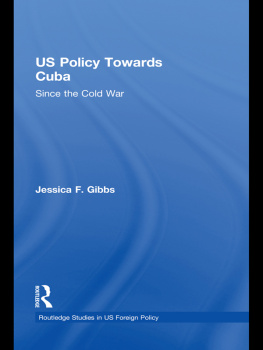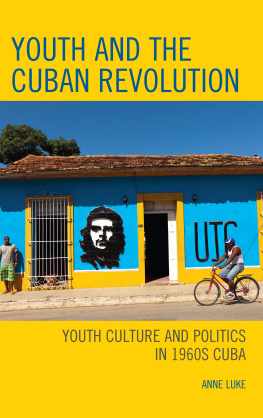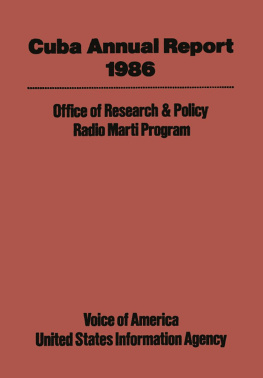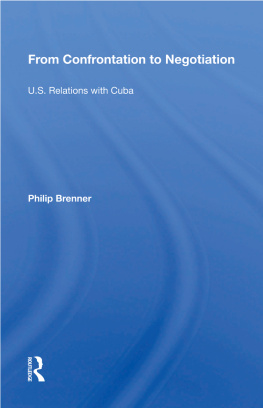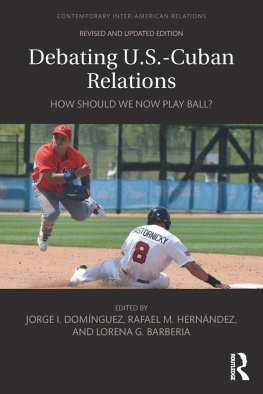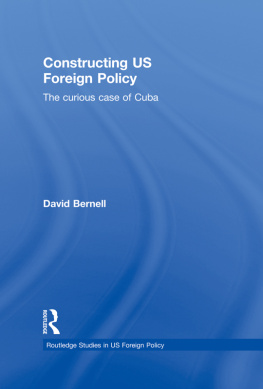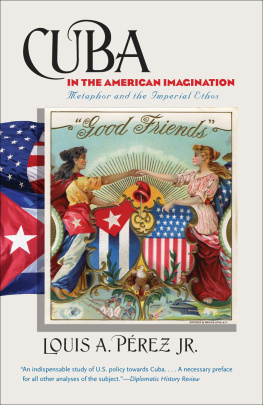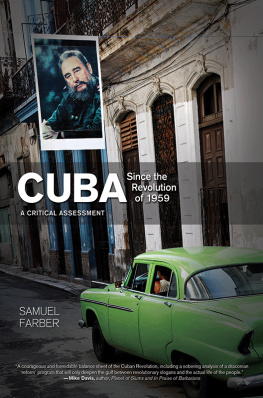US Policy Towards Cuba
US Policy Towards Cuba is a comprehensive examination of US policy towards Cuba after the Cold War, from 1989 to 2008. It discusses the competition between Congress and the executive for control of policy, and the domestic interests which shaped policymaking and led to the passage of two major pieces of legislation (the Cuban Democracy Act of 1992 and the Cuban Liberty and Democratic Solidarity Act of 1996, better known as the HelmsBurton Act) which tightened the embargo on Cuba and were fiercely resisted by US allies. There is also a strong focus on migration as an issue in US-Cuban relations.
The book then moves on to examine US policy during the second Clinton administration, when the interest group environment altered for two principal reasons. First, the case of the small Cuban rafter boy, Elin Gonzlez, attracted huge media coverage and led to public questioning of the wisdom of current policy, and second, the agricultural lobby, keen to export to Cuba, lobbied for the Trade Sanctions Reform and Export Enhancement Act, which finally passed in 2000. The final section of the book analyses democracy promotion efforts under President George W. Bush.
Seeking to cast light upon the US policymaking process, Gibbs demonstrates that US-Cuba policy represents a rather extreme example of the influence of domestic politics on policymaking, and provides a significant contribution to this important and under-researched aspect of US foreign policy.
Jessica F. Gibbs completed her PhD at the University of Cambridge in 2005 and lectures in History at the University of Aberystwyth. Her research interests include US foreign policy, in particular the influence of domestic politics on the policymaking process, USLatin American relations and migration.
Routledge Studies in US Foreign Policy
Edited by Inderjeet Parmar
University of Manchester
and John Dumbrell
University of Durham
This new series sets out to publish high quality works by leading and emerging scholars critically engaging with United States Foreign Policy. The series welcomes a variety of approaches to the subject and draws on scholarship from international relations, security studies, international political economy, foreign policy analysis and contemporary international history.
Subjects covered include the role of administrations and institutions, the media, think tanks, ideologues and intellectuals, elites, transnational corporations, public opinion, and pressure groups in shaping foreign policy, US relations with individual nations, with global regions and global institutions and Americas evolving strategic and military policies.
The series aims to provide a range of books from individual research monographs and edited collections to textbooks and supplemental reading for scholars, researchers, policy analysts and students.
United States Foreign Policy and National Identity in the 21st Century
Edited by Kenneth Christie
New Directions in US Foreign Policy
Edited by Inderjeet Parmar, Linda B. Miller and Mark Ledwidge
Americas Special Relationships
Foreign and domestic aspects of the politics of alliance
Edited by John Dumbrell and Axel R Schfer
US Foreign Policy in context
National ideology from the founders to the Bush Doctrine
Adam Quinn
The United States and NATO since 9/11
The transatlantic alliance renewed
Ellen Hallams
Soft Power and US Foreign Policy
Theoretical, historical and contemporary perspectives
Edited by Inderjeet Parmar and Michael Cox
The US Public and American Foreign Policy
Edited by Andrew Johnstone and Helen Laville
American Foreign Policy and Postwar Reconstruction
Comparing Japan and Iraq
Jeff Bridoux
Neoconservatism and American Foreign Policy
A critical analysis
Danny Cooper
US Policy Towards Cuba
Since the Cold War
Jessica F. Gibbs
US Policy Towards Cuba
Since the Cold War
Jessica F. Gibbs

LONDON AND NEW YORK
First published 2011
by Routledge
2 Park Square, Milton Park, Abingdon, Oxon, OX14 4RN
Simultaneously published in the USA and Canada
by Routledge
270 Madison Avenue, New York, NY 10016
Routledge is an imprint of the Taylor & Francis Group, an informa business
This edition published in the Taylor & Francis e-Library, 2011.
To purchase your own copy of this or any of Taylor & Francis or Routledges collection of thousands of eBooks please go to www.eBookstore.tandf.co.uk.
2011 Jessica F. Gibbs
All rights reserved. No part of this book may be reprinted or reproduced or utilised in any form or by any electronic, mechanical, or other means, now known or hereafter invented, including photocopying and recording, or in any information storage or retrieval system, without permission in writing from the publishers.
British Library Cataloguing in Publication Data
A catalogue record for this book is available from the British Library
Library of Congress Cataloging in Publication Data
A catalog record for this book has been requested
ISBN 0-203-94612-X Master e-book ISBN
ISBN: 9780415437479 (hbk)
ISBN: 9780203946121 (ebk)
Contents
Acknowledgements
This book would not have been possible without the support and involvement of several people. Inspired by my time in Cuba, the research upon which it is based was carried out largely in Britain, drawing upon unclassified congressional and presidential papers and United Nations documents, among other materials. However, my interviewees in the United States, former policymakers, congressional aides, activists and academics, were generous with their time and helped me to gain a better understanding of the policymaking process in relation to Cuba.
Special thanks are due to my PhD supervisor, John A. Thompson, whose continuing encouragement and advice have been indispensable. I would also like to thank John Dumbrell and Tony Badger, my PhD examiners, who encouraged me to think about how I could adapt my thesis into publishable form. I had the opportunity to present material relating to the book at several workshops, research seminars and conferences, and would like to thank all those who provided feedback and suggestions for improvement. I am very grateful to the editors and staff at Routledge, who have been supportive and understanding. Finally, I thank my family for their assistance and forbearance, particularly in the last stages of the project when I was both completing the manuscript and adjusting to parenthood.
Introduction
For more than 200 years US policymakers have regarded Cubas fate as very much their own concern. This book discusses how relations between the two countries developed after the end of the Cold War, when, from a realist perspective, one might have expected the easing of the US economic embargo in the wake of the withdrawal of Cuban troops from Africa and the collapse of the SovietCuban alliance. Instead, however, sanctions tightened as policymakers in Washington attempted to increase economic pressure in order to bring about Fidel Castros downfall. This strategy was not cost-free. Not only did the tougher measures provoke considerable international criticism, but the extraterritorial reach of anti-Castro legislation caused tensions between the United States and its allies. This book seeks to explain why these measures were adopted, with particular emphasis on the domestic factors at play.

